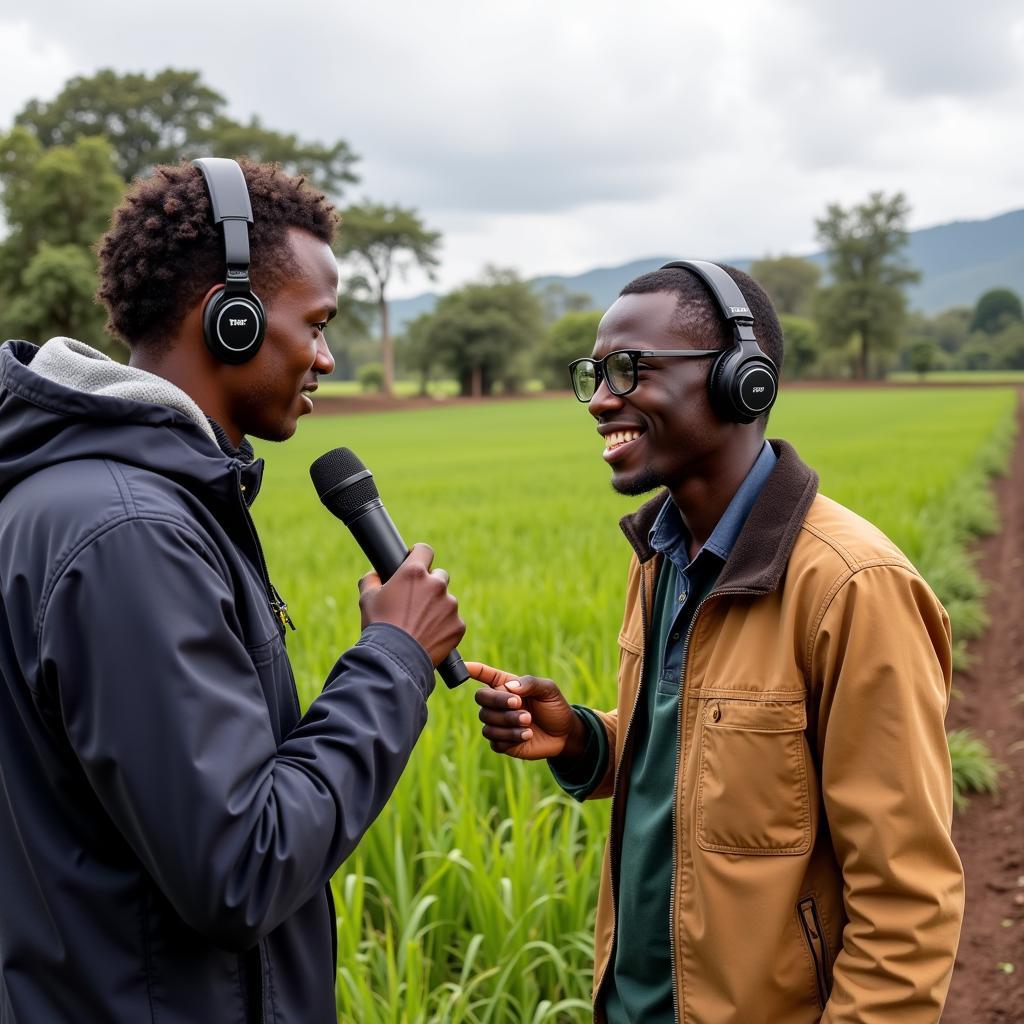Exploring African Journalism Studies
African Journalism Studies is a dynamic and evolving field that examines the complex role of media in shaping African societies. From pre-colonial communication systems to the digital age, the field explores how journalism has influenced politics, culture, and social change across the continent. This exploration delves into the historical context, contemporary challenges, and future prospects of journalism in Africa.
Historical Context of African Journalism Studies
Understanding African journalism requires acknowledging its rich history. Pre-colonial communication, through oral traditions and other indigenous methods, laid the foundation for modern media practices. The arrival of print media during the colonial era marked a significant shift, often serving as a tool for colonial powers. However, it also provided a platform for nascent nationalist movements to voice their dissent. After independence, many African nations witnessed the growth of state-controlled media, reflecting the political landscape of the time. Check out the insights found at african american studies definition.
Post-Independence Media Landscapes
The post-independence period saw the rise of diverse media landscapes across the continent. While some countries maintained tight control over media outlets, others embraced liberalization and the growth of independent press. This era witnessed the emergence of vibrant journalistic traditions, often facing challenges related to censorship, political interference, and limited resources. The role of radio in reaching diverse audiences, particularly in rural areas, has been crucial.
 African Journalism: Radio Broadcast in Rural Community
African Journalism: Radio Broadcast in Rural Community
Contemporary Challenges and Opportunities in African Journalism Studies
African journalism faces numerous contemporary challenges. These include issues of media ownership, funding limitations, and the digital divide. The rise of social media presents both opportunities and challenges, offering new avenues for information dissemination but also raising concerns about misinformation and the spread of “fake news”. Additionally, training and capacity building for journalists remain crucial for fostering ethical and professional reporting. This is reminiscent of some of the themes explored at african american studies programs.
Navigating the Digital Age
The digital age has transformed the media landscape in Africa, creating new opportunities for citizen journalism and online platforms. This shift necessitates examining how digital technologies impact journalistic practices, audience engagement, and the fight against disinformation. Mobile phone penetration has significantly expanded access to information, but also presents challenges in regulating online content and ensuring media literacy among users. Furthermore, the role of digital media in promoting social activism and political participation is a key area of study.
 African Journalism in the Digital Age: Mobile Reporting
African Journalism in the Digital Age: Mobile Reporting
Future Directions for African Journalism Studies
What are the future prospects of journalism in Africa? The field must continue to adapt to the evolving media landscape. This involves exploring innovative approaches to journalism education, fostering collaborations between media organizations and academic institutions, and promoting research that addresses critical issues facing the profession. Understanding the intersection of journalism, technology, and social change is crucial for charting a path forward. Do the themes of hunger and suffering ever appear in journalism studies? See african hunger reality images.
Empowering Local Voices and Narratives
One critical area of focus is empowering local voices and narratives. African journalism studies must prioritize amplifying diverse perspectives and challenging dominant narratives. This includes supporting community-based media initiatives, promoting multilingual journalism, and fostering ethical reporting practices that prioritize accuracy, fairness, and social responsibility. Furthermore, research on the impact of media representation on social perceptions and cultural identity is essential. Exploring the african child and vulture picture can be a starting point to understanding the impact of visual narratives.
 African Journalism: Community Radio Workshop(https://omenkamag.com/african-american-studies-minor/).]
African Journalism: Community Radio Workshop(https://omenkamag.com/african-american-studies-minor/).]
Conclusion
African journalism studies offer valuable insights into the complex interplay of media, society, and politics across the continent. By engaging with the historical context, contemporary challenges, and future prospects of journalism in Africa, we can better understand its crucial role in shaping public discourse and driving social change. Further exploration and research in this field are essential for fostering a vibrant and independent media landscape that empowers African voices and contributes to democratic development.
FAQ
- What is the significance of oral traditions in African journalism studies?
- How has colonialism impacted media development in Africa?
- What are the key challenges facing African journalists today?
- How is digital technology transforming journalism in Africa?
- What are some future directions for research in African journalism studies?
- How can we promote ethical and responsible journalism in Africa?
- What is the role of media in fostering democracy and development in Africa?
Need Help?
When you need support, please contact us by Phone: +255768904061, Email: kaka.mag@gmail.com or visit our office at Mbarali DC Mawindi, Kangaga, Tanzania. We have a 24/7 customer support team.


